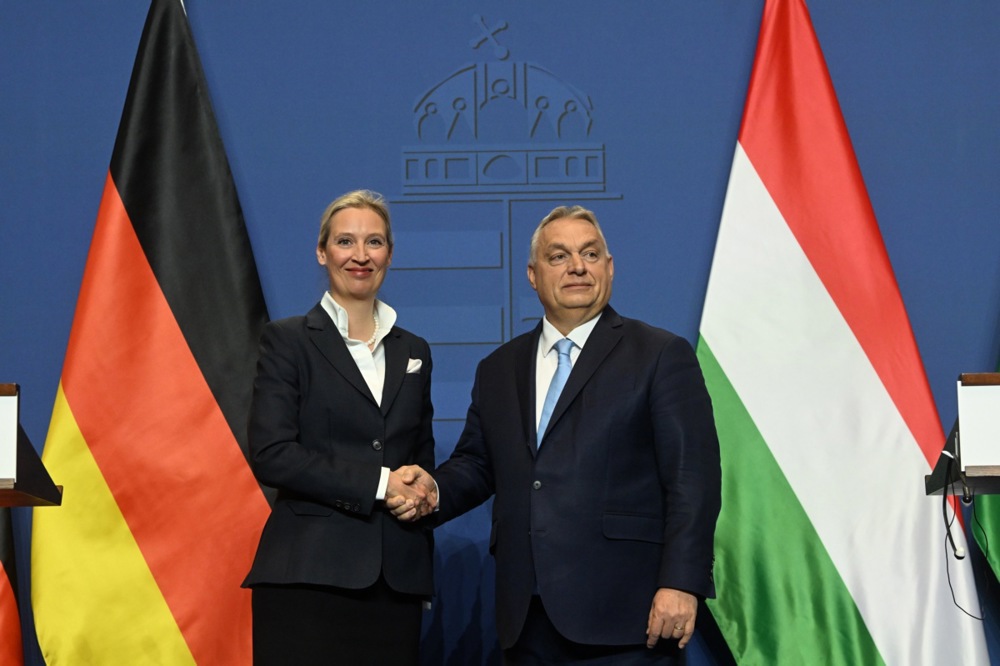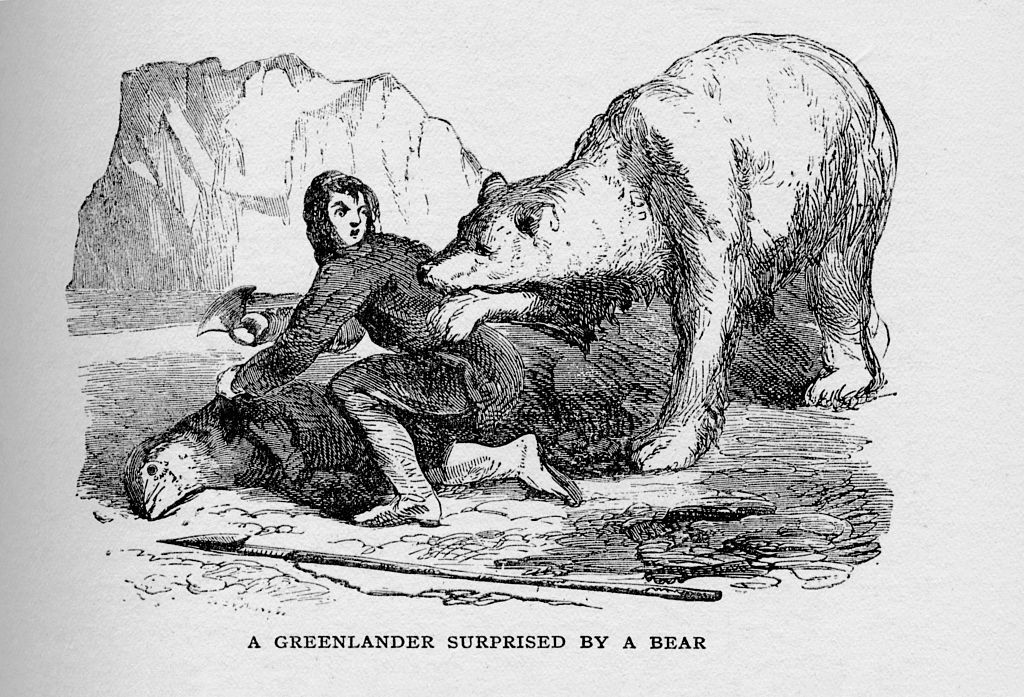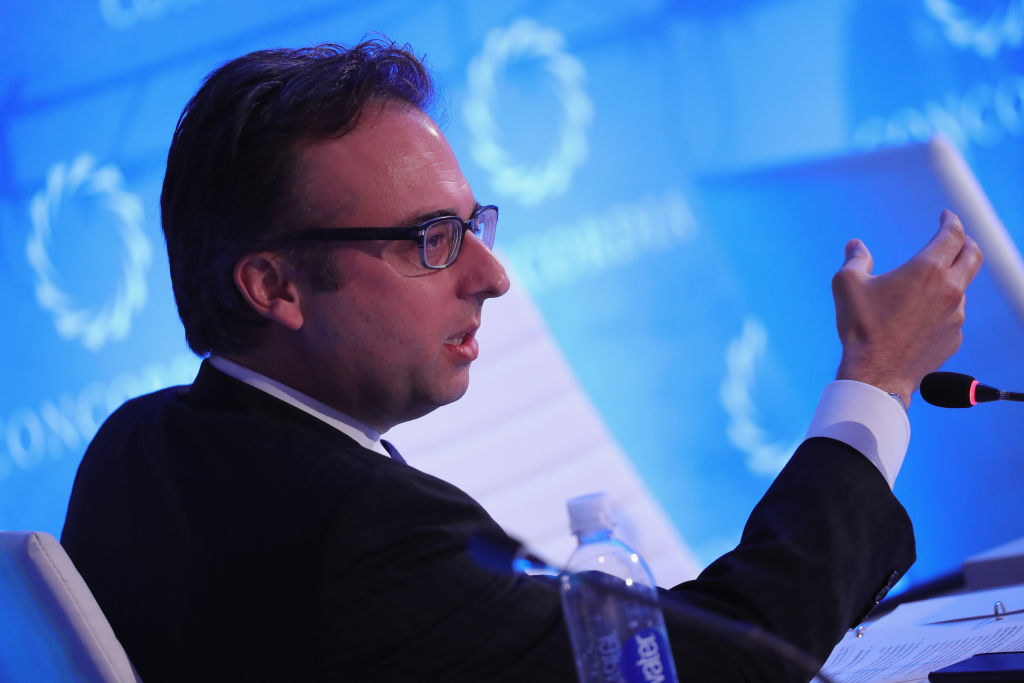Statements and speeches last week from President Donald Trump, Vice President JD Vance and Secretary of Defence Pete Hegseth have been treated as the end of the world by the transatlantic politico-military establishment. That is not quite right, but it’s fair to say that it is a clear statement that the United States-Europe relationship must fundamentally change if it is to endure.
The proper way to think about the words is to analogize them to a marriage. One partner, after years of growing frustration, finally tells the other that things must change or they’re out.
That puts the onus on the other partner to decide: do they want a renewed relationship that changes to meet the other partner’s needs?
The fact is that the United States and continental Europe, like an unhappily married couple, have been growing apart for decades. The US interpreted the fall of the Berlin Wall and the consequent dissolution of the Soviet Union as a victory for Reagan-era principles of liberal democracy and capitalism.
It wanted to continue the momentum and spread those ideas worldwide. That led to the so-called Washington Consensus that turbo-charged global trade. It also created the idea of the international rules-based order, an order that was implemented largely by Americans driven by American values and underwritten by American military and economic power.
Continental Europeans mostly saw 1989 and its aftermath as the end of the century of war that began in 1914. With that threat removed, centre-right and centre-left elites largely saw the new century as the chance to build what they viewed as a superior civilisation to that of the United States.
That civilisation was globalist in outlook, like America’s. The European Union expanded, as did NATO, and the victorious Western European powers poured investment into the newly liberated countries.
Some nations got into the global trade game, too. Germany and France in particular benefitted from China’s spectacular economic growth, while smaller nations like Sweden, Denmark, and the Netherlands ran trade surpluses by specialising in discrete goods like pharmaceuticals.
The European vision, though, differed from the American in the desire to police the world’s conflicts. America maintained a strong military capable of intervening anywhere. European nations mostly disarmed, eliminating their capacity to even fulfil their commitments to European collective defence.
They also developed strong disagreements with America over how to respond to global crises. France and Germany refused to support America’s war with Iraq in the early 2000s, for example. Most European nations also counselled cooperation with Iran rather than confrontation.
That implicit pacifism was a feature, not a bug. European elites viewed war as a thing they had outgrown. They viewed America’s continued use of it as helpful to them, as it provided for their defence, but largely self-defeating outside of that context.
Endless diplomacy, not winning conflicts, was the European solution to global tensions.
European elites also started to move away from accepting America’s political situation. They increasingly disdained people and ideas associated with the Republican Party, clearly favouring the culturally liberal elites in the Democratic Party.
German Chancellor Angela Merkel’s continued move to make Germany more reliant on Russian natural gas while refusing to significantly increase defence spending was one clear sign that the relationship was in trouble. The not-so-veiled sense was that Germans understood Vladimir Putin better than Americans, and especially better than troglodytes like Trump.
That means that Trump and Republicans viewed Putin’s invasion of Ukraine despite the public intervention of French president Emmanuel Macron and German Chancellor Olaf Scholz as a confirmation of their worldview. This week’s statements are graphic proof of that conclusion.
Other clear indications of condescension toward the Republican Right were also manifest. The almost religious devotion of the Euro-elites to aggressive climate change policies were one important indication of the contempt felt for the GOP’s Trump wing, which favoured exploiting America’s fossil fuel deposits to the fullest.
But perhaps most telling was the European Parliament’s vote condemning the United States Supreme Court’s decision in the Dobbs case, which held that there was no constitutional right of woman to an abortion. The Republican Party had been fighting for such a decision for decades and opposition to abortion had been a fundamental principle in its platform since 1980.
The EU leadership nevertheless felt that they should make a moral statement that would have no effect on a matter of purely American domestic concern. Believe me, that was noticed.
The gist of the Trump-Vance-Hegseth statements is simple: we won’t play your game any longer. To wit:
- America will no longer underwrite your defence and take the lead in solving your conflicts while having its views and interests ignored and decried;
- America will not hobble its economy to pursue global warming goals that cannot be achieved anyway because China, India, and other developing nations won’t cut their greenhouse gas emissions;
- America will not give you free access to our economy while you protect key segments of yours (automobiles, agriculture, Internet and AI).
Of course, this throws the ruling elites into a frenzy, but they should also recognise that they have brought this on themselves. They could have adapted to American requests ranging back to the Obama Administration for increased defence spending but chose to ignore them until the Ukraine invasion.
Even now, Germany, France, Italy, and Spain – four of the largest EU economies – don’t spend the minimum 2 per cent of GDP on defence that has long been NATO’s goal or struggle barely to meet it.
Europe could have guarded against Trump’s wrath by building freer trade relations with United States during the Biden Administration. Instead, they ratcheted up regulations on American high-tech firms and maintained their barriers to American agriculture.
Europe now knows where it stands. If it wants a relationship with America, it must have a relationship with all of America, not just the half that it prefers to invite to cocktail parties.
If it wants a seat at the table to form a united front with the United States even in its backyard, it needs to develop the hard military power that commands respect.
If it wants respect from Washington, it must show respect to Alabama, Kansas, and the places in flyover country that elect Republicans. And it must also show respect to their own citizens, often from their own rural and forgotten communities, who feel and vote the same way.
European elites may decide they don’t want a relationship on those terms. That’s certainly one option, and an understandable, if regrettable, one.
But then that’s their choice, not Trump’s. And they will then need to sleep in the bed they have made.





Ready for an ‘abomination?’ In American history, tariffs have consequences